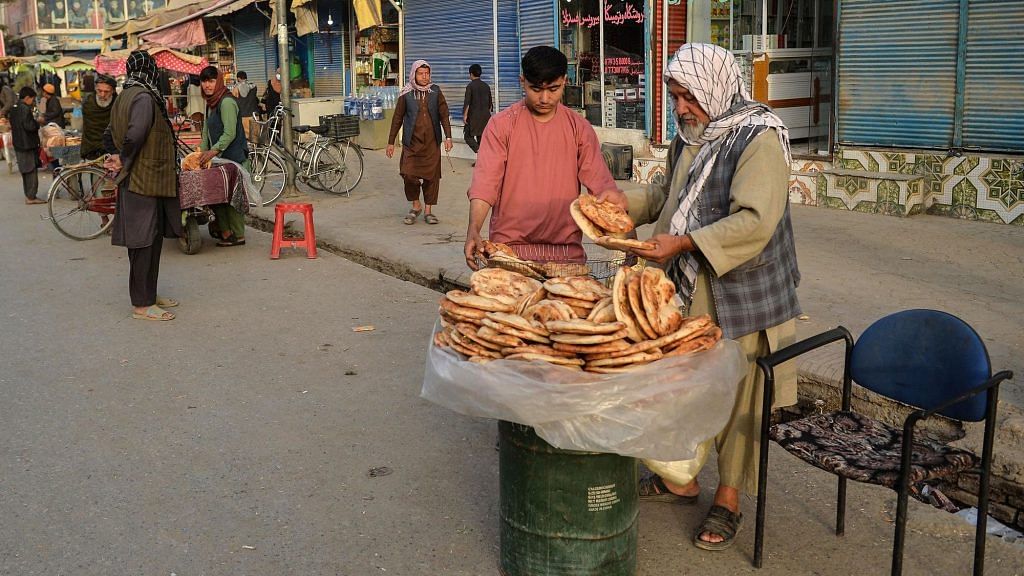Vatican City/Washington: The world’s wealthy economies decided to channel aid through the United Nations to contain a humanitarian crisis in Afghanistan at an extraordinary summit on Tuesday. Several leaders gave the virtual gathering a miss, highlighting tensions over how to deal with the country’s new Taliban rulers.
China’s Xi Jinping and Russia’s Vladimir Putin were among those who did not participate in the Group of 20 call hosted by Italy. In all, more than two-thirds of leaders dialed in, with the remainder represented by ministers, according to a G-20 official who asked not to be identified talking about confidential matters.
“Various representatives of international organization spoke of a humanitarian catastrophe,” Italian Prime Minister Mario Draghi told reporters after the talks. “I invited everyone to work together as much as possible” to avoid the worst as winter approaches, and “almost all leaders spoke of the need to forge a united approach.”
Italy holds this year’s presidency of the G-20, with Draghi pushing for weeks to get the meeting off the ground. An attempt ahead of the event to work out a common line on the Taliban was dropped and, as leaders struggle to bridge their differences, Afghanistan is careening toward ruin.
On Monday, UN Secretary-General Antonio Guterres urged countries to unfreeze assets and allow aid to flow or risk watching the country collapse. He said bolstering the economy can be done without recognizing the Taliban.
That’s something the European Union has no intention of doing at this stage, but all 27 member states agreed the bloc must consider political and financial cooperation, and for that several benchmarks have been identified — including respect for human rights and free access to humanitarian aid, Charles Michel, president of the European Council, told the summit according to an EU official.
Leaders affirmed their commitment to channeling assistance directly to the Afghan people via independent international organizations, the White House said. They also discussed safe passage out of Afghanistan and how to prevent the country becoming a haven for terrorism.
Earlier, Ursula von der Leyen, head of the European Commission, announced an expanded support package to Afghanistan worth about 1 billion euros ($1.15 billion).
We must do all we can to avert a major humanitarian and socio-economic collapse in Afghanistan.
We need to do it fast.
Today at the @G20org I will present an Afghan Support Package worth around €1 billion.— Ursula von der Leyen (@vonderleyen) October 12, 2021
When the Taliban took power in August after two decades of war with America, half the population was already reliant on aid. Officially labeled a terrorist organization, the militant group hasn’t been given access to the country’s central bank reserves. The U.S. did hold its first official meeting with the Taliban last weekend in Doha, Qatar, calling the group “candid and professional” in the talks.
The parlous state of the economy has raised fresh concerns about a potential mass exodus of refugees into neighboring countries like Pakistan, with most of the efforts focused on keeping them from heading toward Turkey and onto Europe.
China was represented by Foreign Minister Wang Yi. The Asian nation was the country most lukewarm to the summit, one of the officials said, and still hadn’t confirmed its participation when Italy set a date.
China wants all countries imposing unilateral sanctions on Afghanistan to revoke them and global financial institutions to support infrastructure projects and help Kabul fight poverty, Wang said in a statement after the meeting. That would show respect for Afghanistan’s sovereignty, he said.
Beijing has embraced the Taliban’s return, a stance that could allow it to tap into Afghanistan’s vast mineral resources and give China a target for expanding its massive Belt and Road infrastructure program.
Moscow, meanwhile, informed the Italian presidency earlier that both Putin and Foreign Minister Sergei Lavrov would be too busy to join, Kremlin spokesman Dmitry Peskov said. Putin was replaced by Deputy Foreign Minister Igor Morgulov and Kremlin special envoy Zamir Kabulov.
Non G-20 guests included Qatar. Italy invited the Persian Gulf state because it’s been heavily involved in keeping Kabul airport open and is hosting a number of diplomatic missions in Afghanistan. Qatar has been a key conduit keeping channels open to the Taliban.
Also taking part were the World Bank and the International Monetary Fund.
“I consider this meeting a success because I think this is the first time leaders gave a multilateral response to the Afghan crisis,” Draghi said. “Multilateralism is coming back, with difficulty, but it is returning.”- Bloomberg
Also read: PM Modi calls for unhindered and urgent humanitarian assistance to Afghans at G20 summit
